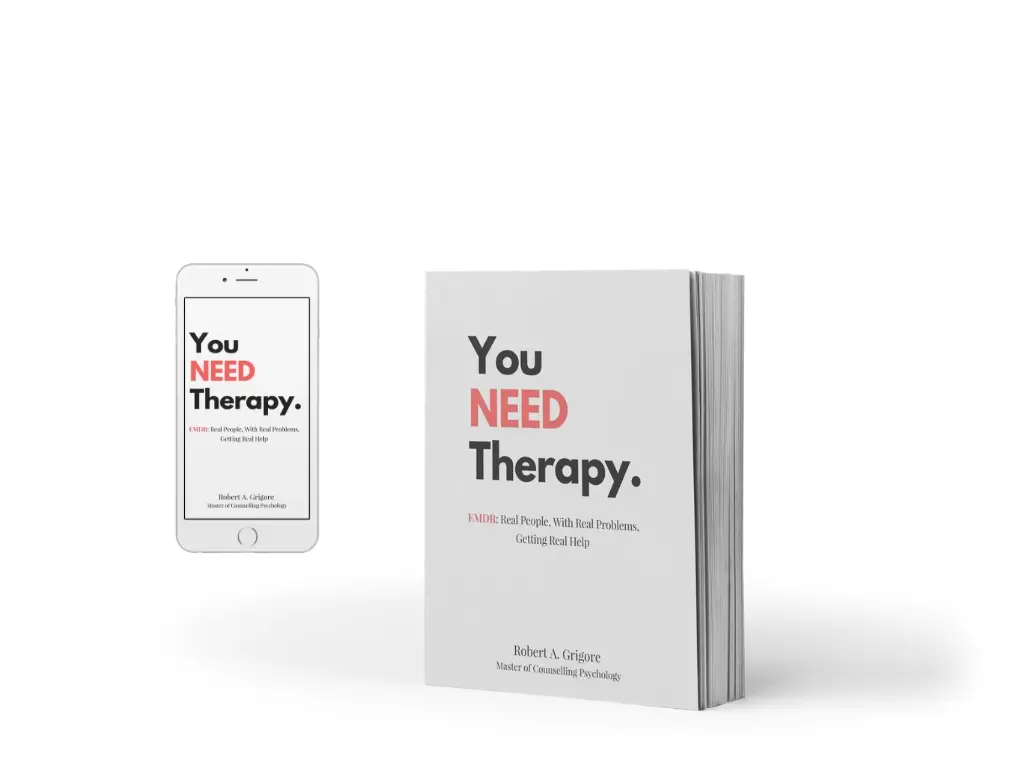Unlocking Corporate Wellness: Mental Health Workshops and EMDR-Based Training to Empower Staff
In today’s fast-paced corporate world, employee well-being is more important than ever. Companies are increasingly recognizing the benefits of investing in the mental health and wellness of their staff. One approach that is gaining traction is incorporating trauma-informed Eye Movement Desensitization and Reprocessing (EMDR)-based trainings and mental health workshops.
By providing these trainings, companies are not only empowering their employees with valuable tools to address trauma and stress-related issues, but they are also fostering a supportive and empathetic work culture. EMDR, a therapeutic technique that helps individuals process traumatic experiences, has been proven effective in reducing symptoms of PTSD and anxiety. Implementing trauma-informed practices and mental health workshops can also enhance employee productivity and performance, as well as reduce absenteeism and presenteeism.
Empowering staff with trauma-informed EMDR-based trainings and mental health workshops is a proactive step towards creating a more compassionate and resilient workforce. Investing in employee well-being is not only a strategic business decision, but it also demonstrates a company’s commitment to the holistic health of its employees. By unlocking corporate wellness in this way, companies can destigmatize mental health, and foster a workplace environment where employees feel supported and encouraged to thrive both personally and professionally.

Understanding Corporate Wellness
Corporate wellness encompasses a variety of initiatives aimed at improving the overall health and well-being of employees within an organization. It goes beyond just offering gym memberships or health screenings; it involves a holistic approach that considers physical, mental, and emotional wellness. By prioritizing wellness, companies can create a supportive workplace that fosters employee engagement and productivity. Employees who feel cared for are more likely to be motivated and committed to their work, leading to lower turnover rates and higher job satisfaction.
A fundamental aspect of corporate wellness is recognizing that each employee is unique, with individual needs and experiences. This includes acknowledging the various stressors that can affect mental health, such as workload, work–life balance, and personal challenges. By implementing wellness programs that are adaptable and inclusive, employers can cater to diverse employee needs. This approach not only enhances morale but also encourages a culture of empathy and support, where employees feel safe discussing their well-being.
Moreover, corporate wellness initiatives can significantly impact a company’s bottom line. Healthier employees tend to have lower healthcare costs, reduced absenteeism, and improved performance. Investing in comprehensive wellness programs can lead to substantial savings for organizations, as well as fostering a positive reputation that attracts top talent. Therefore, understanding and implementing effective corporate wellness strategies is crucial for creating a thriving workplace where employees can flourish, both personally and professionally.

The Impact of Trauma on Employees' Mental Health
Trauma can have far-reaching effects on an individual’s mental health, influencing their emotional stability, cognitive function, and overall well-being. Employees who have experienced trauma may struggle with anxiety, depression, and post-traumatic stress disorder (PTSD), which can manifest in various ways, including difficulty concentrating, irritability, and withdrawal from social interactions. These symptoms can severely impact job performance, relationships with colleagues, and overall job satisfaction, leading to a decline in workplace morale.
Moreover, according to the Centre for Addiction and Mental Health (CAMH), mental illness is the reason 500,000 employees miss work each week across Canada. The cost is great, not just impacting the individual, but the company’s bottom line where according to Monster.ca, unplanned absences costs employers $572 per employee, and $1,700 annually, when considering disability as a whole. According to a survey of 4,900 Manulife Financial Corp.’s group benefits plan sponsor clients, employees missed 48 days in 2022, costing Canadian employers a combined $645 million annually. The overall statistics are not promising as absenteeism often a symptom of mental illness, according to Global News contributes to a $16.6 billion strain on the Canadian economy, and mental illness making up a $51 billion economic strain on the country.
Additionally, the workplace can sometimes exacerbate trauma-related issues. High-pressure environments, unrealistic expectations, and lack of support can trigger past traumas, causing employees to feel overwhelmed and disengaged. When employees are not equipped to cope with their trauma, it can lead to absenteeism and presenteeism, where individuals are physically present but mentally disengaged. This dual issue creates a cycle that can be detrimental to both the employee and the organization, highlighting the urgent need for trauma-informed practices in corporate wellness.
Understanding the impact of trauma is critical for employers who want to foster a healthy work environment. By acknowledging the complexities of mental health and providing appropriate support systems, companies can help employees manage their trauma effectively. This proactive approach not only improves individual well-being but also promotes a culture of understanding and compassion within the organization, ultimately benefiting the entire workforce.

Introducing Trauma-Informed EMDR-Based Trainings
Trauma-Informed EMDR (Eye Movement Desensitization and Reprocessing) training is emerging as an effective way to equip employees with tools to address trauma-related challenges. EMDR is a therapeutic technique that facilitates the processing of traumatic memories, helping individuals to reduce the emotional distress associated with those experiences. By incorporating EMDR–based trainings into corporate wellness programs, organizations can empower their staff to better understand and manage their mental health.
These trainings are designed to educate employees about the effects of trauma and the importance of mental health. Participants learn how to recognize trauma responses in themselves and others, fostering a supportive environment where individuals feel safe sharing their experiences. The training includes practical strategies for implementing trauma-informed affect management techniques, which can be beneficial not only in personal healing but also in cultivating a more empathetic workplace culture.
Moreover, trauma-informed EMDR-based trainings help destigmatize mental health issues within the organization. By openly addressing these topics, companies can create a space where employees feel encouraged to seek help and support. This shift in mindset can lead to improved communication, stronger relationships among colleagues, and ultimately, a more resilient workforce capable of navigating the challenges of the modern corporate landscape.

How Trauma-Informed EMDR Trainings Empower Staff
Trauma-informed EMDR trainings empower employees by providing them with actionable skills to manage their mental health proactively. Participants learn to identify signs of trauma and understand how it impacts their thoughts, feelings, and behaviors. This increased awareness allows employees to take ownership of their mental well-being, fostering a sense of agency and control over their lives.
Through the integration of trauma-informed EMDR-based techniques, employees gain practical tools to cope with current stressors and equip them with the awareness of when it’s time to call upon a Certified EMDR Therapist to address underlying trauma and deeper issues. Trauma-informed EMDR-based techniques can include bilateral stimulation and guided visualization, which can help mitigate anxiety and improve emotional regulation. By practicing these methods, employees can develop healthier coping strategies that translate into improved focus and productivity at work.
Additionally, trauma-informed EMDR-based trainings encourage a culture of empathy and support among colleagues. When employees understand the impact of trauma, they are more likely to extend compassion and understanding towards one another. This collective awareness fosters an environment where individuals feel comfortable sharing their experiences and seeking help when needed, ultimately enhancing team dynamics and collaboration. By empowering staff with these valuable skills, organizations can cultivate a more resilient workforce capable of thriving in the face of challenges.

The Benefits of Mental Health Workshops in the Workplace
Mental health workshops serve as a vital component of corporate wellness programs, offering employees a structured opportunity to engage with their mental well-being. These workshops provide a safe space for individuals to learn about mental health topics, share their experiences, and connect with others facing similar challenges. By facilitating open discussions about mental health, companies can help destigmatize these issues and promote a culture of support and understanding.
One significant benefit of mental health workshops is the enhancement of employees’ coping skills. Participants can learn various stress management techniques, mindfulness practices, and emotional regulation strategies that can be applied both in and out of the workplace. As employees develop these skills, they become better equipped to handle stressors, leading to improved job performance and overall well-being.
Furthermore, mental health workshops can strengthen team cohesion by fostering trust and camaraderie among employees. When individuals come together to discuss their mental health, they build connections and create a sense of community within the organization. This collaborative atmosphere can lead to increased morale, better communication, and a more supportive work culture, which ultimately benefits everyone involved. By investing in mental health workshops, companies can prioritize their employees’ well-being while reaping the rewards of a more engaged and productive workforce.

Incorporating Trauma-Informed Practices into Corporate Wellness Programs
Incorporating trauma-informed practices into corporate wellness programs requires a thoughtful and intentional approach. Organizations must first understand the principles of trauma-informed care, which include safety, trustworthiness, peer support, collaboration, empowerment, and cultural sensitivity. By embedding these principles into wellness initiatives, companies can create an environment that fosters healing and resilience.
One way to implement trauma-informed practices is by providing training for managers and HR personnel. By educating leadership on the impacts of trauma and the importance of mental health, organizations can ensure that they are equipped to support their employees effectively. This training can help managers develop empathetic communication skills, recognize signs of distress, and create a psychologically safe workplace where employees feel valued and supported.
Additionally, organizations should consider integrating trauma-informed interventions into their existing wellness programs. This could include offering mental health resources, such as counselling services, peer support groups, or workshops focused on coping strategies. By actively promoting these resources and encouraging employees to participate, companies can demonstrate their commitment to fostering a supportive work environment that prioritizes mental well-being. Click here or watch the video below for detailed examples of how human resources leadership can foster an environment of safety, collaboration, and team cohesion.
Choosing the Right Trauma-Informed EMDR Workshop Provider
Selecting a qualified trauma-informed EMDR workshop provider is crucial to the success of any corporate wellness initiative. Organizations should look for providers with a proven track record of delivering effective trainings that align with their specific needs and goals. Researching potential providers’ credentials, experience, and client testimonials can help organizations identify those that are best suited for their workforce.
It’s essential to consider the content and structure of the workshops offered by potential providers. Workshops should be interactive and engaging, allowing participants to practice trauma-informed techniques and share their experiences in a supportive setting. A well-designed training should not only educate employees about trauma and EMDR but also provide them with practical tools they can apply in their daily lives.
Finally, organizations should ensure that the workshop provider understands the unique dynamics of their workplace culture. A provider who can tailor the training to meet the specific needs of the organization will be more effective in fostering a positive impact on employees’ mental health. By carefully selecting a trauma-informed EMDR-based workshop provider, companies can maximize the benefits of these trainings and contribute to a healthier, more resilient workforce.
Successful Case Studies of Companies Implementing Trauma-Informed Practices
Several organizations have successfully implemented trauma-informed practices, demonstrating the positive impact these initiatives can have on employee well-being and workplace culture. For example, a healthcare organization integrated trauma-informed practices into its employee assistance program. By providing access to mental health resources and training staff on trauma awareness, the organization created an environment where employees felt supported and understood. This proactive approach not only improved employee morale but also enhanced patient care, as staff members who felt emotionally healthy were better equipped to support their patients.
A Professional Hockey Players Association Alumni group recognized high levels of stress among its members, introduced a trauma-informed EMDR-based workshop. As a result, members reported significantly lower levels of anxiety and improved life satisfaction. The workshops fostered a sense of community and trust, leading to better collaboration within the membership.
Another notable case is a financial services company that prioritized mental health saw remarkable results after implementing trauma-informed workshops. Employees who participated in the training reported increased resilience and reduced absenteeism. The company also noted a decrease in healthcare costs associated with mental health issues, demonstrating that investing in employee well-being can yield significant financial benefits. These successful case studies highlight the effectiveness of trauma-informed practices in promoting a healthier and more productive workforce. Click here for more case studies and testimonials.

Measuring the Effectiveness of Trauma-Informed EMDR-Based Trainings and Mental Health Workshops
Evaluating the effectiveness of trauma-informed EMDR-based trainings and mental health workshops is essential for organizations to understand their impact on employee well-being. One effective method of assessment is through pre- and post-training surveys, which can gauge shifts in employees’ mental health, coping skills, and overall job satisfaction. By collecting feedback from participants, organizations can gain insights into the strengths and areas for improvement within their training programs.
Another approach to measuring effectiveness is through tracking key performance indicators (KPIs) related to employee well-being. These KPIs may include metrics such as absenteeism rates, employee turnover, and healthcare costs associated with mental health issues. By monitoring these indicators before and after implementing trauma-informed practices, organizations can better understand the tangible benefits of their initiatives.
Additionally, conducting follow-up interviews or focus groups can provide qualitative data on the impact of trauma-informed trainings. Employees can share their experiences, insights, and suggestions for improvement, offering valuable feedback that can inform future wellness initiatives. By employing a comprehensive evaluation strategy, organizations can ensure that their trauma-informed EMDR-based trainings and mental health workshops are effectively supporting employee well-being and contributing to a healthier workplace culture.
Conclusion: The Role of Corporate Wellness in Supporting Employees' Mental Health
In conclusion, corporate wellness plays a vital role in supporting employees’ mental health and fostering a thriving workplace environment. By investing in trauma-informed EMDR-based trainings and mental health workshops, organizations can empower their staff with the tools needed to manage trauma and stress effectively. This proactive approach not only benefits individual employees but also enhances overall workplace morale, productivity, and collaboration.
As companies continue to recognize the importance of mental health, integrating these initiatives into corporate wellness programs will become increasingly essential. By promoting a culture of understanding and support, organizations can destigmatize mental health issues and encourage open conversations among employees. This shift not only improves employee well-being but also strengthens team dynamics and organizational resilience.
Ultimately, prioritizing corporate wellness is a strategic business decision that reflects a company’s commitment to the holistic health of its employees. By unlocking corporate wellness through trauma-informed practices, organizations can foster a compassionate and resilient workforce that thrives in the face of challenges, leading to long-term success and sustainability. For more information on incorporating a trauma-informed, EMDR-based training or workshop in your company’s wellness program, along with a link to schedule a free consultation, click here.
Please comment or reach out if you’d like more information or if you’d like to incorporate trauma-informed EMDR-based trainings along with a full certification course in Psychological First Aid.










